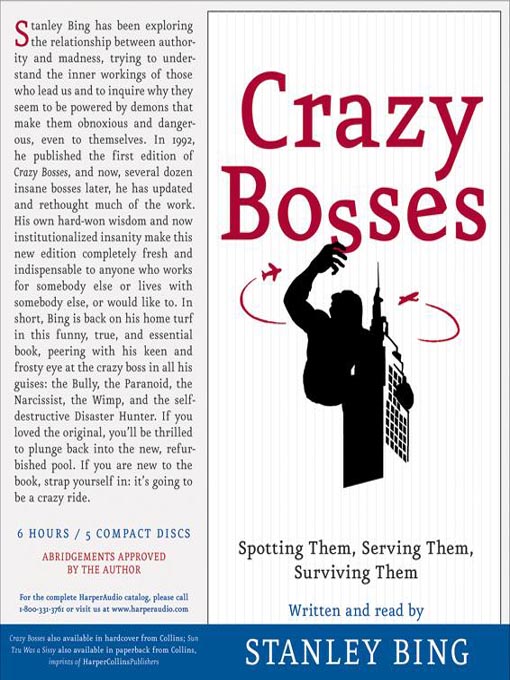Jam-packed with new anecdotes, updated references, and modernized jokes, Stanley Bing's seminal investigation of what makes bosses crazy is now revised for a new generation.
Fans of television's The Office and the cult film Office Space will love this classic guide to the universal workplace phenomenon of crazy bosses, now updated for a new century's worth of insane supervisors. Bestselling author and business guru Stanley Bing's Crazy Bosses identifies the various types of crazy bosses—the boss with the five brains, the bully, the paranoid boss, the narcissist, the "bureaucrazy," and the disaster hunter—and offers readers concrete strategies on how to cope, and, most importantly, how not to become crazy bosses themselves.



